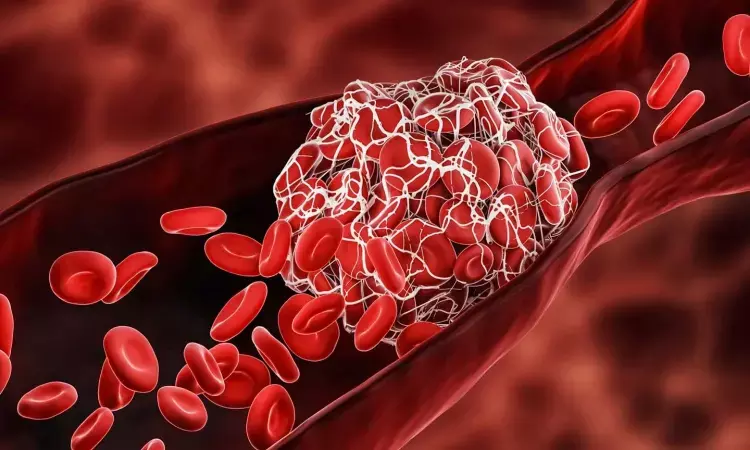- Home
- Medical news & Guidelines
- Anesthesiology
- Cardiology and CTVS
- Critical Care
- Dentistry
- Dermatology
- Diabetes and Endocrinology
- ENT
- Gastroenterology
- Medicine
- Nephrology
- Neurology
- Obstretics-Gynaecology
- Oncology
- Ophthalmology
- Orthopaedics
- Pediatrics-Neonatology
- Psychiatry
- Pulmonology
- Radiology
- Surgery
- Urology
- Laboratory Medicine
- Diet
- Nursing
- Paramedical
- Physiotherapy
- Health news
- Fact Check
- Bone Health Fact Check
- Brain Health Fact Check
- Cancer Related Fact Check
- Child Care Fact Check
- Dental and oral health fact check
- Diabetes and metabolic health fact check
- Diet and Nutrition Fact Check
- Eye and ENT Care Fact Check
- Fitness fact check
- Gut health fact check
- Heart health fact check
- Kidney health fact check
- Medical education fact check
- Men's health fact check
- Respiratory fact check
- Skin and hair care fact check
- Vaccine and Immunization fact check
- Women's health fact check
- AYUSH
- State News
- Andaman and Nicobar Islands
- Andhra Pradesh
- Arunachal Pradesh
- Assam
- Bihar
- Chandigarh
- Chattisgarh
- Dadra and Nagar Haveli
- Daman and Diu
- Delhi
- Goa
- Gujarat
- Haryana
- Himachal Pradesh
- Jammu & Kashmir
- Jharkhand
- Karnataka
- Kerala
- Ladakh
- Lakshadweep
- Madhya Pradesh
- Maharashtra
- Manipur
- Meghalaya
- Mizoram
- Nagaland
- Odisha
- Puducherry
- Punjab
- Rajasthan
- Sikkim
- Tamil Nadu
- Telangana
- Tripura
- Uttar Pradesh
- Uttrakhand
- West Bengal
- Medical Education
- Industry
Rivaroxaban effective in treating of Noncirrhotic Splanchnic Vein Thrombosis

Rivaroxaban has proven to be a suitable alternative to traditional anticoagulation in the treatment of non-cirrhotic splanchnic vein thrombosis (SVT), says an article published in Blood Advances.
Vitamin K and Heparins antagonists are the mainstays of splanchnic vein thrombosis therapy. Rivaroxaban is a possible substitute, however data to support its usage is limited. As a result, Walter Ageno and his colleagues undertook this study to assess the safety and effectiveness of rivaroxaban in the management of acute SVT.
Adult patients with a first episode of symptomatic, non-cirrhotic, objectively diagnosed SVT were treated with rivaroxaban 15 mg bid for three weeks, followed by 20 mg qd for three months in an international, single-arm clinical study. Participants with Budd-Chiari syndrome and those on full-dose anticoagulation for more than 7 days previous to enrollment were excluded. The primary result was severe bleeding, while the secondary outcomes were mortality, recurrent SVT, and full vein recanalization within three months. Patients were monitored for a total of six months.
The key findings of this study were as follow:
1. A total of 103 patients were recruited, with 100 of them being qualified for the study.
2. The average age was 54.4 years, with men accounting for 64% of the population.
3. Abdominal inflammation/infection (28%) was a risk factor for SVT, as was solid malignancy (9%), myeloproliferative neoplasms (9%), and hormone treatment (9%); 43 percent of instances were unprovoked.
4. The JAK2 V617F mutation was found in 26% of the 50 individuals studied.
5. At 3 months, 2 patients (2.1%; 95% CI, 0.6-7.2) experienced significant bleeding (both gastrointestinal).
6. One (1.0%) patient died from a non-SVT-related reason, and two suffered recurrent SVT (2.1% ).
7. In 47.3% of patients, complete recanalization was reported.
8. At 6 months, there was one more large bleeding incident and one recurrence SVT.
In conclusion, This research proved the effectiveness and safety of rivaroxaban as a therapy for acute non-cirrhotic SVT for a period of three months. Longer follow-up data is required.
Reference:
Ageno, W., Beyer-Westendorf, J., CONTINO, L., Bucherini, E., Sartori, M. T. T., Senzolo, M., Grandone, E., Santoro, R. C. C., Carrier, M., Delluc, A., De Stefano, V., Rivaroxaban for the treatment of noncirrhotic splanchnic vein thrombosis: an interventional prospective cohort study. In Blood Advances. American Society of Hematology. https://doi.org/10.1182/bloodadvances.2022007397
Medical Dialogues consists of a team of passionate medical/scientific writers, led by doctors and healthcare researchers. Our team efforts to bring you updated and timely news about the important happenings of the medical and healthcare sector. Our editorial team can be reached at editorial@medicaldialogues.in.
Dr Kamal Kant Kohli-MBBS, DTCD- a chest specialist with more than 30 years of practice and a flair for writing clinical articles, Dr Kamal Kant Kohli joined Medical Dialogues as a Chief Editor of Medical News. Besides writing articles, as an editor, he proofreads and verifies all the medical content published on Medical Dialogues including those coming from journals, studies,medical conferences,guidelines etc. Email: drkohli@medicaldialogues.in. Contact no. 011-43720751


